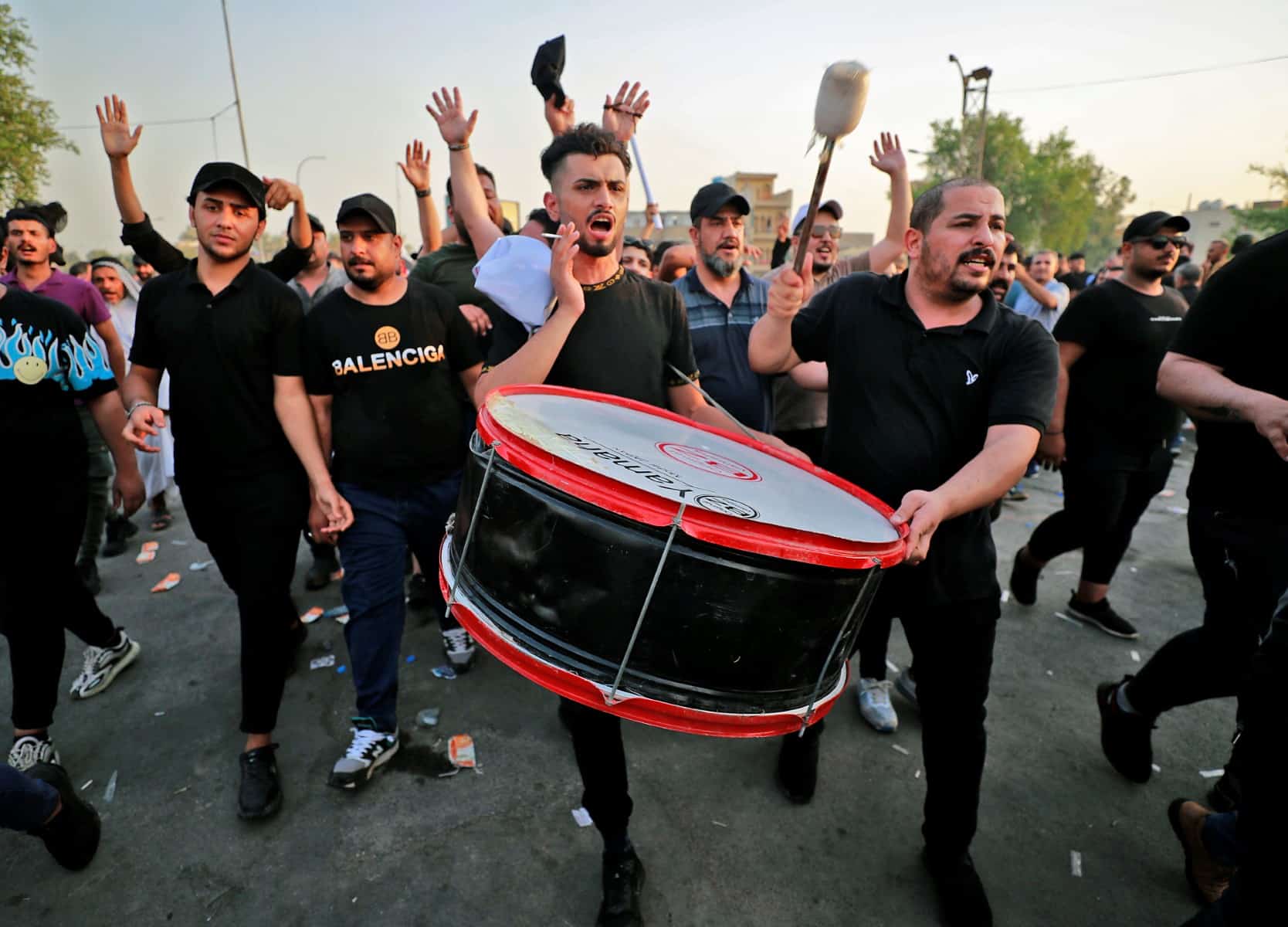Hundreds of Iraqis took to the streets of Baghdad Monday in counter-protests as rival supporters of Shiite Muslim cleric Moqtada Sadr extended their occupation of parliament for a third day.
A political standoff — almost 10 months after Iraqis went to the polls — pits two key factions among the country’s majority Shiite population, between the populist Sadr with a devoted following of millions, and the powerful pro-Iran Coordination Framework.
“The people will not allow a coup,” read placards held by supporters of the Coordination Framework as they marched down a street leading to the Green Zone, the home of parliament — which since Saturday, Sadr’s supporters have been occupying.
“It is the parliament of the people, of all Iraqis, not the parliament of a select group”, said protester Ahmed Ali, 25, condemning “the storming” of government institutions.
Sadr’s supporters on Saturday breached the normally high-security Green Zone — also home to government buildings and embassies — in protest at the prime ministerial nomination by their rivals, the Coordination Framework.
‘Defend the state’
On Monday afternoon, large numbers of security forces set up roadblocks in a bid to contain the counter-protests, firing water cannon at the crowds to keep them away from the Green Zone.
Close by, inside parliament, thousands of Sadr supporters maintained their protest, waving flags and pictures of their leader.
On social media, followers of the Coordination Framework insisted the demonstrations are “not directed against any particular group”.
They also urged the protesters not to enter the Green Zone, saying that the objective was to “defend the state and its legitimacy”.
In multi-confessional and multi-ethnic Iraq, government formation has involved complex negotiations since a 2003 US-led invasion toppled dictator Saddam Hussein.
In this case, the protracted political deadlock has left the country without a government, a new prime minister or a new president.
Sadr’s massive mobilization of supporters in recent weeks has underscored the political clout of the firebrand preacher, who once led a militia against American and Iraqi government forces.
The alliance includes lawmakers from the party of Sadr’s longtime foe, ex-prime minister Nuri al-Maliki.
It also represents the powerful pro-Iran former paramilitary alliance Hashed al-Shaabi, now integrated into the regular forces.
Hadi al-Ameri, who heads a faction of the Hashed al-Shaabi, repeated a call on Monday for “constructive dialogue enabling solutions to be found to points of contention”.
He warned against “an atmosphere of media escalation, sparked by statements and counter-statements calling for mass mobilizations that could get out of control and lead to violence”.
‘Government of the corrupt’
Sadr’s 73 lawmakers had made up the biggest group of parliament’s 329 lawmakers but were unable to cobble together a government.
In June they quit, a move that made their pro-Iran Shiite rivals the largest bloc in the legislature.
But the Sadrist camp were outraged by the Coordination Framework’s recent nomination of former minister Mohammed Shia al-Sudani for premier, prompting them to occupy parliament on Saturday for a second time in just days.
On Sunday, the mercurial Sadr called on “everyone… to support the reformist revolutionaries”.
He lauded a “spontaneous revolution in the Green Zone — a first step”, he said, towards “an extraordinary opportunity for a fundamental change”.
The Coordination Framework described the appeal as “a call for a coup against the people, the state and its institutions”.
In the legislature’s main hall on Monday, followers of Sadr chanted, “Here are the soldiers of the sons of the sayyed,” using an honorific reference to the preacher, who wears a black turban symbolic of a descendant of the Prophet Mohammed.
“We want to get rid of the government of the corrupt,” said protester Zaher al-Atabi, decrying a lack of basic services including health and education.
The Sadrists also have representatives at the highest levels of government ministries, and have been accused by their opponents of being as corrupt as other political forces.
But his supporters view him as a champion of the anti-corruption fight.

